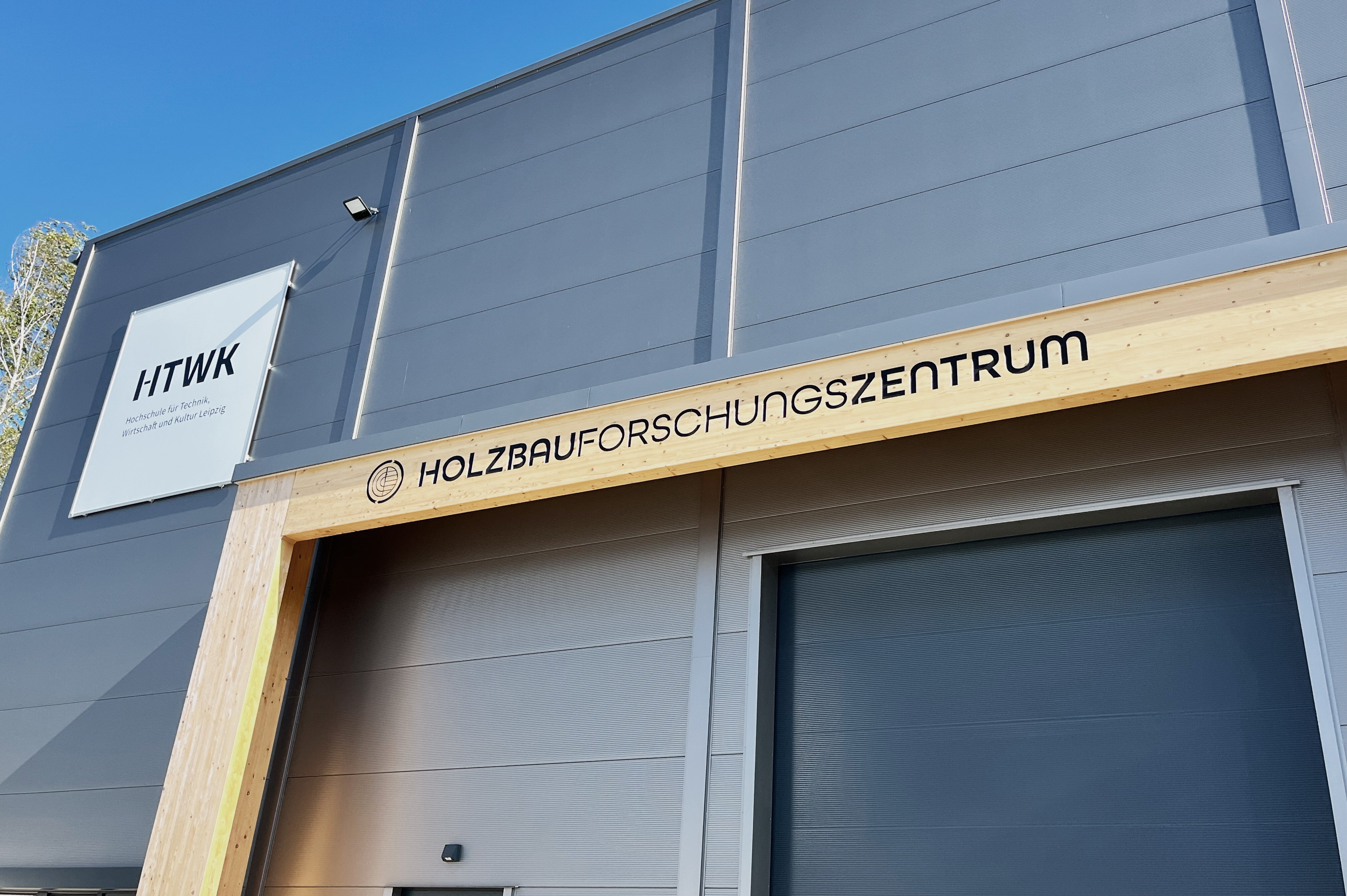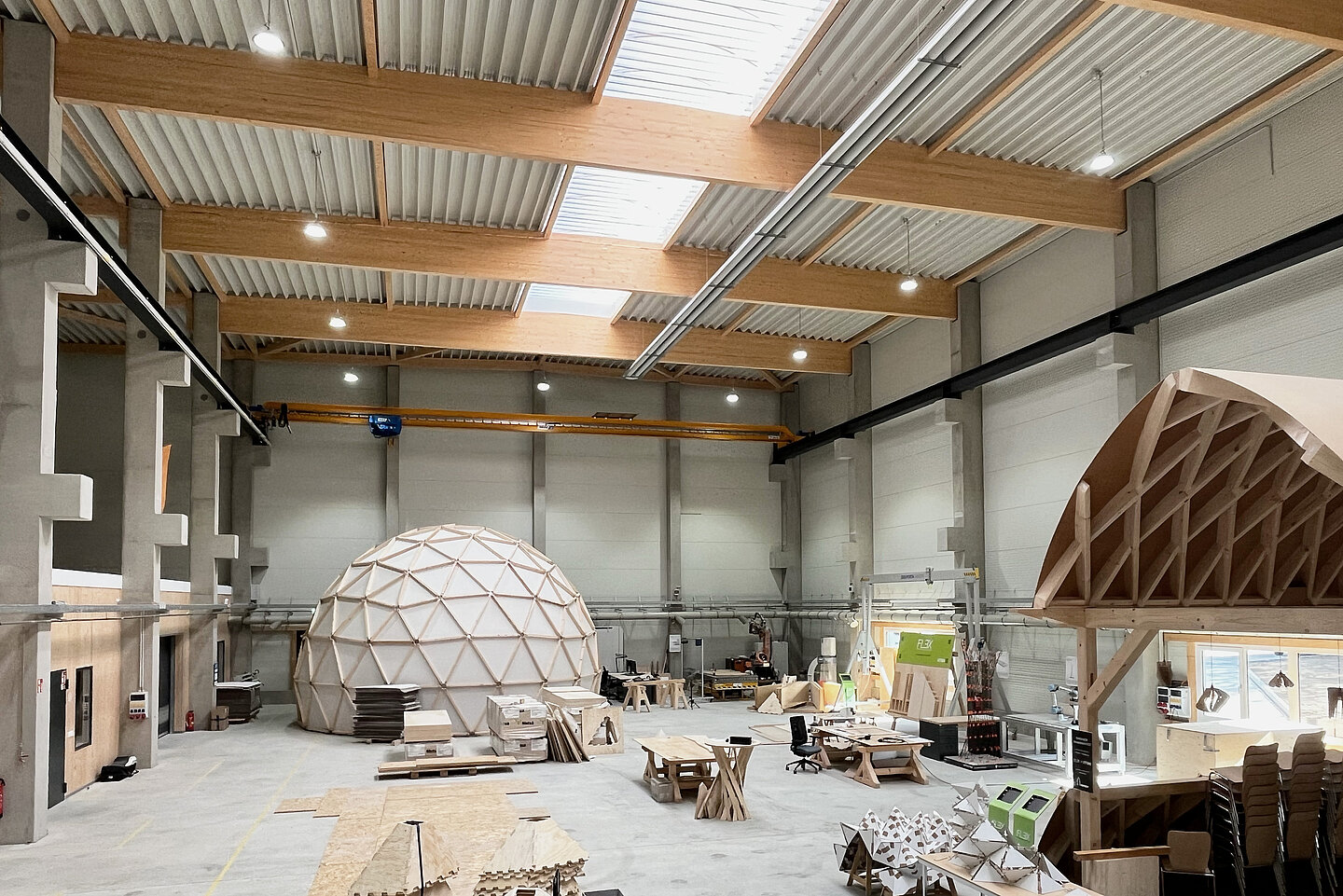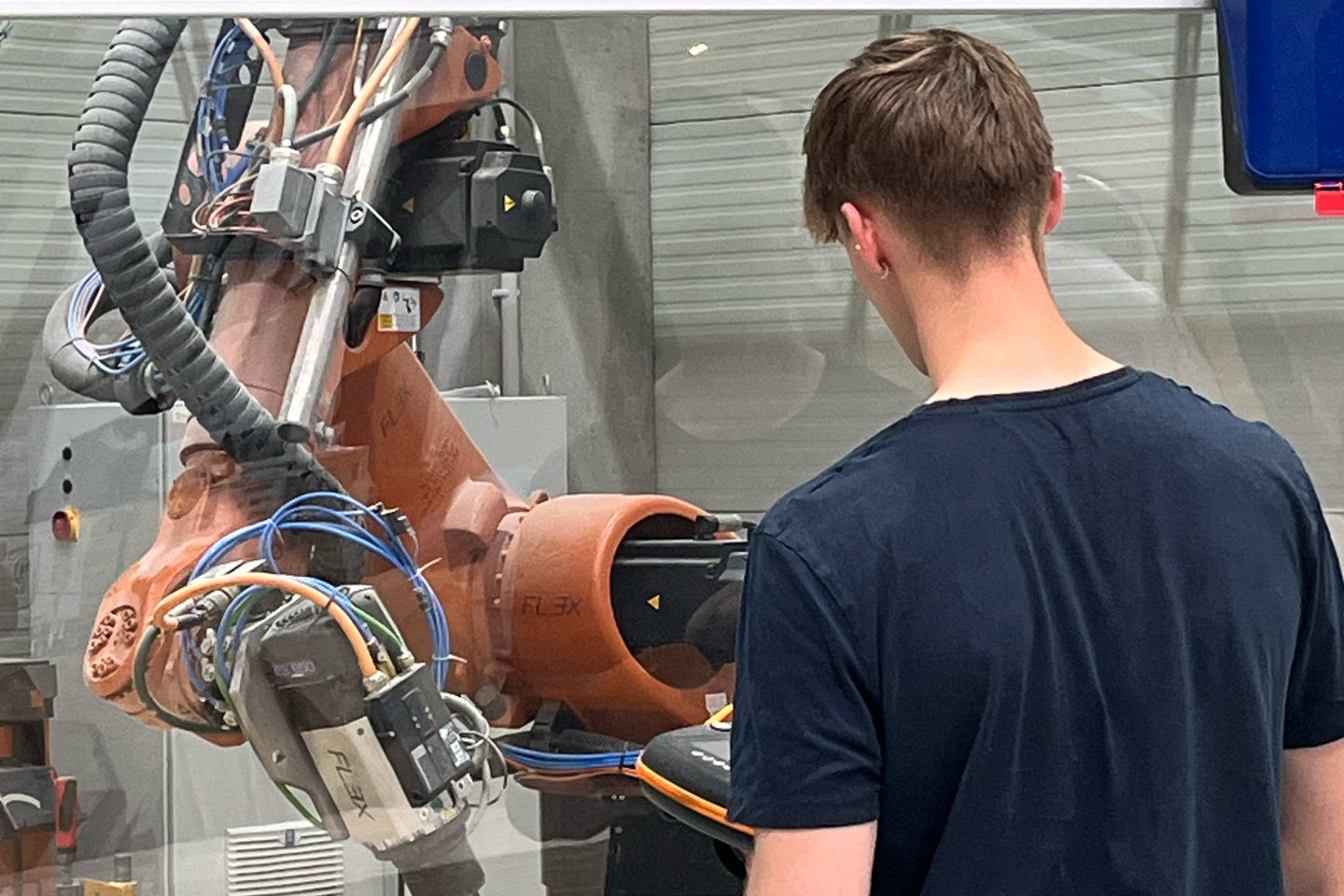STATUS. The HolzBauForschungsZentrum Leipzig (HBFZ) is a technical centre for developing strategies and testing individualised, automated production concepts in timber construction. The 1,100 square metre hall in the east of Leipzig offers optimal conditions for real-scale tests. Fully digitally planned implementation strategies for high-quality, resource-saving and recyclable wall and ceiling elements are put to the test here. The technological centrepiece is two overhead crane systems running on the same crane runway with industrial robots suspended overhead. The fully numerical control of material, tool and workpiece logistics makes the system highly flexible. This means that individually configured components can be manufactured highly efficiently - with significantly reduced space requirements for production.
CONSTRUCTION INDUSTRY. The built environment is the infrastructural backbone of our society. But construction and maintenance require a massive amount of resources - in terms of materials, personnel and time. The key challenges for the industry, which is still heavily characterised by craftsmanship in its execution, are: the finite nature of natural material resources (e.g. sand and gravel) and the stagnating efficiency in project realisation for decades. Due to cultural and organisational deficits, the industry has not yet been able to participate in the massive efficiency increases of the series production-oriented industries. Both the process chain and the value chain have numerous breaks that have so far prevented a transformation of the conceptual approach.
WOOD CONSTRUCTION. The natural, renewable raw material wood has the potential to become a problem solver for these challenges - if it is taken seriously (again) as a building material. Building with wood not only has the longest history of use, but has always been based on the principle of prefabrication (carpentry-style joinery) under workshop conditions. This is due to the fact that, unlike "synthetic building materials" such as concrete, steel or masonry, timber already hasa format the start of the processing chain . The bar-shaped geometry of the tree trunks requires a fundamentally different approach to processing and construction. From today's perspective, the prefabrication principle also harbours considerable potential on a digital-technological basis. Even if developed for other applications, digital data processing and automated production technology can be transferred to timber construction. Research and development focussed on system innovation results in construction solutions with significantly lower resource consumption (material, time, personnel) and significantly higher, assured execution quality.
RESEARCH APPROACH. A holistic approach is propagated as a solution to the problem, in which the information generated in design and planning is aligned with the goal of numerically controlled prefabrication in the form of clearly structured data and via precisely defined interfaces. The central scientific core task is the precise analysis and dedicated description of a process (also with complex organisational integration of different players). Researchers from different disciplines work on "their" projects - primarily application-orientated - in content-focused teams, but always in line with the overall concept. Their scientific methods and strategies, which vary according to context, deliver findings and subsequently reproducible results, which in turn are brought close to practical applicability.
ORGANISATION. The HolzBauForschungsZentrum is part of the HTWK Leipzig and is located in the "InnovationsPark Bautechnik Leipzig/Sachsen" in the Engelsdorf district. The interdisciplinary FLEX research group uses the hall for numerous research projects in the overlapping area of digitally based planning and numerically controlled prefabrication. The architects, engineers, wood technicians and computer scientists frequently collaborate with regional and national partners from science and industry. The close proximity to the Carbon Concrete Technology Centre at HTWK Leipzig, other institutes located on the site and the Materials Research and Testing Institute for the Construction Industry (MFPA Leipzig GmbH) generates extensive synergy effects for the rapid testing and certification as well as the establishment of new construction products on the market.



